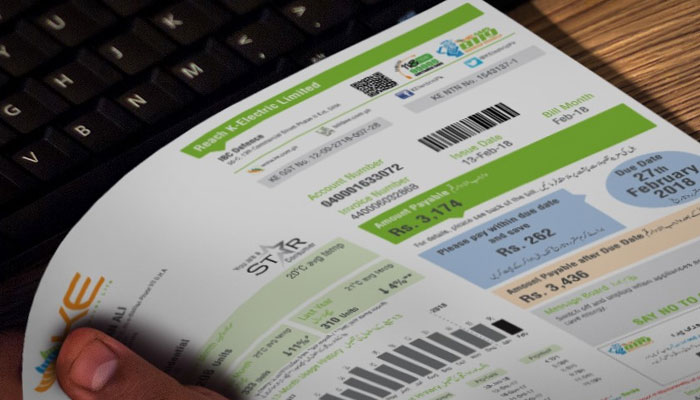Higher electricity bills for KE consumers in Oct, Nov


- Extra Rs2.5934/unit, Rs3.1688/unit for Oct, Nov requested by KE.
- KE initially sought hike of Rs2.53/unit for May, Rs2.92/unit for June FCA.
- Nepra criticised by consumers for not protecting public interests.
ISLAMABAD: Consumers of electricity in Karachi will be charged with higher bills in October and November after the National Electric Power Regulatory Authority (Nepra) approved K-Electric’s request to collect additional charges in the aforementioned months.
According to a The News news report on Thursday, KE has requested the power regulatory body to approve the collection of additional Rs2.5934 per unit and Rs3.1688 per unit in October and November, respectively.
This increase stems from adjustments for monthly fuel charges covering May and June 2024. The total impact of these adjustments amounts to Rs5.763 per unit, imposing an additional burden of nearly Rs10.6 billion on consumers.
With the inclusion of the general sales tax (GST), the total cost could reach approximately Rs12.5 billion.
Criticism of Nepra was voiced during the hearing by Karachi-based industrialists, politicians and power consumers. They accused the regulator of acting as a “rubber stamp” for both the government and K-Electric, claiming that Nepra routinely approves their demands without adequately protecting public interests.
In its decision, the Authority noted that K-Electric used the fuel cost component of Rs8.9623/unit for energy from the Central Power Purchasing Agency (CPPA-G) in May 2024, and Rs9.1190/unit for June 2024, based on prior approvals. The approved fuel costs were Rs9.1190/unit for May and Rs9.7545/unit for June 2024, leading to positive adjustments of Rs118.76 million for May and Rs459.32 million for June 2024.
For KCCP generation on HSD, KE initially used a fuel price of Rs7,333.04/MMBtu for June 2024 but corrected it to Rs7,179.86/MMBtu.
KATI and BQATI requested a provisional FCA charge of Rs1/unit for May and June 2024 due to economic hardship and high inflation, suggesting adjustments be made in winter when consumption is lower.
Jamat-e-Islami’s Imran Shahid opposed the FCA request, arguing it’s not in consumers’ interest. Arif Bilwani questioned why KE used KCCP on HSD instead of the cheaper BQPS-I on RFO.
KE explained the dispatch was based on merit order and load demand. Bilwani also suggested replacing KE’s own generation with NTDC power to reduce costs, but the Authority noted that increasing electricity from the National Grid to KE is a policy decision.
Source link

